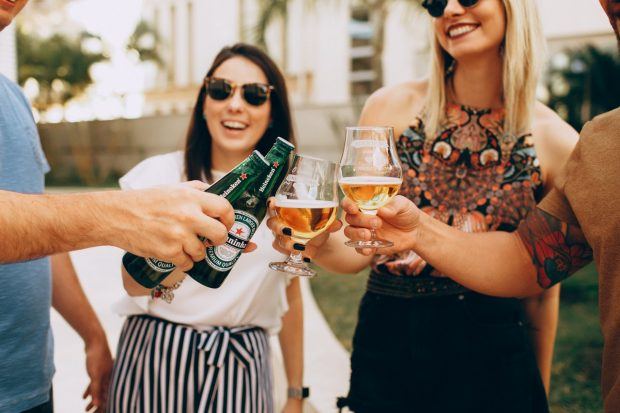Yes, there’s festive cheer in the air, but that doesn’t mean it’s all love and light. The holiday season can stir up different emotions, particularly if you’ve had a hard year, and before you know it, you’re dealing with the holiday blues.
What are the Holiday Blues?
Speaking to Psychology.Org, Fatima Watt, Psy.D., director of behavioral health services at Franciscan Children’s, explained holiday blues as “feelings of stress, anxiety, and sadness that surround the holiday season.”
As for what triggers these blues, it can vary from person to person and it can include;
- Poor sleep quality
- Financial stress
- Grief
- Loneliness
- Unrealistic expectations
A person experiencing holiday blues will likely exhibit symptoms similar to depression, such as:
- Changes in appetite or weight
- Changes in sleep patterns
- Depressed or irritable mood
- Difficulty concentrating
- Feelings of worthlessness or guilt
- Feeling more tired than usual
- Feeling tense, worried, or anxious
- Loss of pleasure in doing things you used to enjoy
While you may not be able to completely prevent experiencing the holiday blues, the good news is that there are strategies that will help you get through the festive season if you’re feeling a little blue.
12 Ways to Manage the Holiday Blues
1. Stay active
The thought of exercising during the holidays, especially when you’re supposed to be relaxing, may sound unappealing, but the reality is that incorporating physical activity into your festive season can help you manage those holiday blues.
One study noted that exercise is an effective tool in managing depression. This is because regular physical activity not only alleviates stress, but also triggers the release of endorphins, brain chemicals that help ease pain, discomfort, and stress.
2. Get outdoors
Getting some fresh air, vitamin D and a dose of nature is a sure way to lift your mood.
For one, the fresh air raises your brain’s oxygen levels, which then boosts levels of the endorphin serotonin, also known as the ‘feel good’ hormone.
Secondly, low levels of vitamin D have been associated with an increased risk for depression. As the sun is the best source of vitamin D, getting some sunshine can help improve your mood – just don’t forget your sunscreen.
Lastly, spending time in nature around greenery has been found to reduce feelings of anxiety and overthinking. This can lead to a low mood, so why not take a walk through your local park or spend some time in your garden?
3. Set boundaries: NO means NO
It can be hard being around various relatives at once, especially if they all have an opinion on everything and anything. If that’s the case for your household, the best way to navigate this would be to set boundaries.
Whether it’s letting them know that you won’t discuss politics at the dinner table, or simply asking that they respect your “no’s” without an explanation, setting boundaries can prevent negative emotions. Also, by setting boundaries, you won’t find yourself overcommitting and feeling dejected once you can’t come through.
4. Consider volunteering
The best gift you can give is your time, especially if that time is being used to help someone during the festive season.
Volunteering at your local shelter, church, or school isn’t only a great way to uplift your community, but research has found that volunteering can help you find meaning and purpose, as well as improve your empathy towards others.
If you’re wondering how to get started with volunteering, VolunteerMatch can help you find where to volunteer in your area.
5. Limit alcohol
Yes, it’s the season to enjoy an extra glass, but the last thing you want is for alcohol to exacerbate your already low mood.
It’s also important not to turn to alcohol as a way to cope with any difficult emotions that the holiday season may be stirring up.

Photo by Helena Lopes from Pexels
Aside from not keeping any readily available alcohol in your home, it’s best that you limit yourself to no more than two drinks if you’re attending a party.
6. Avoid overeating
Alcohol isn’t the only unhealthy coping mechanism that you need to worry about.
It’s the season of treats, carbs and overindulgence, so it can be easy to get lost in a meal or two. Yet, sugary and fatty foods can worsen your mood, so try to keep your eating habits as healthy as possible. Don’t be shy to indulge in a treat or two, but just make sure to add veggies to your plate.
7. Get plenty of sleep
Holiday blues may disrupt your sleep patterns, but not getting enough sleep can make you feel worse.
So, the best solution is to get as much quality sleep as you can. If you’re struggling to do so, try following a bedtime routine that involves unwinding and settling your mind, as well as going to bed at the same time each night.
8. Set realistic expectations
There’s definitely magic in the air during December, but that doesn’t mean that the holidays are going to be perfect.
People change, stores run out of stock, and traffic is a nightmare. The festive season is an exciting time, but it’s important not to become too drawn in by the magic, but to keep your expectations realistic and reachable.
Focus less on what should and could be, and more on creating meaningful and memorable experiences with your loved ones.
9. Acknowledge your grief
It’s been a long year, and over the past 12 months, you may have lost people close to you. Or, the festive season may be stirring up memories of what once was.
In this case, it’s essential to embrace these feelings and honor your grief. Whether it’s spending a little time reminiscing with a laugh or cry, or simply saying a prayer, honoring your grief will help you embrace the healing journey.
10. Practice gratitude
Being thankful for the small blessings in your life can help change your perspective, serving to counterbalance any negative thoughts you have about the festive season.
Whether it’s starting a gratitude journal, or simply taking a moment to pause and say thank you, be sure to recognize and acknowledge the little things that made you smile this past year.
11. Give the gift of self-care
’Tis the season of giving, but that doesn’t mean that you also can’t spoil yourself a bit too.
Carving some time out for yourself to read a book, take a bath, do some online shopping, or simply meditate can definitely keep you from turning into the blue Grinch.
12. Share your feelings
There’s no better gift than that of companionship, so be sure to surround yourself with loved ones who will lend you an ear should you need to offload your feelings. Your loved ones will do their best to offer support and remind you that you are loved and appreciated.
If you feel that you’re lacking in community, visiting your local church, or temple, or even volunteering can help you forge that connection that you’re seeking.
When Holiday Blues become Depression
The holiday blues are seen as a temporary period of low mood. Yet, if you notice that your symptoms are becoming more persistent and severe, such as extreme isolation, severe insomnia, and suicidal ideation, then you may need to consult a doctor or a counselor.
Takeaway
Towards the end of the year, you may begin to experience feelings of sadness and dread, but you don’t have to drown in these emotions during the festive season.
With the right tools, you can improve your mood and ensure that you have anything but a blue holiday.
References
Ballard, P. J., Daniel, S. S., Anderson, G., Nicolotti, L., Caballero Quinones, E., Lee, M., & Koehler, A. N. (2021). Incorporating Volunteering Into Treatment for Depression Among Adolescents: Developmental and Clinical Considerations. Frontiers in Psychology, 12, 642910. https://doi.org/10.3389/fpsyg.2021.642910
Jimenez, M. P., DeVille, N. V., Elliott, E. G., Schiff, J. E., Wilt, G. E., Hart, J. E., & James, P. (2021). Associations between Nature Exposure and Health: A Review of the Evidence. International Journal of Environmental Research and Public Health, 18(9). https://doi.org/10.3390/ijerph18094790
Knüppel, A., Shipley, M. J., Llewellyn, C. H., & Brunner, E. J. (2017). Sugar intake from sweet food and beverages, common mental disorder and depression: Prospective findings from the Whitehall II study. Scientific Reports, 7. https://doi.org/10.1038/s41598-017-05649-7
khan, B., Shafiq, H., Abbas, S. et al. Vitamin D status and its correlation to depression. Ann Gen Psychiatry 21, 32 (2022). https://doi.org/10.1186/s12991-022-00406-1
Kvam, S., Kleppe, C. L., Nordhus, I. H., & Hovland, A. (2016). Exercise as a treatment for depression: A meta-analysis. Journal of Affective Disorders, 202, 67-86. https://doi.org/10.1016/j.jad.2016.03.063





![women [longevity live]](https://longevitylive.com/wp-content/uploads/2020/01/photo-of-women-walking-down-the-street-1116984-100x100.jpg)










